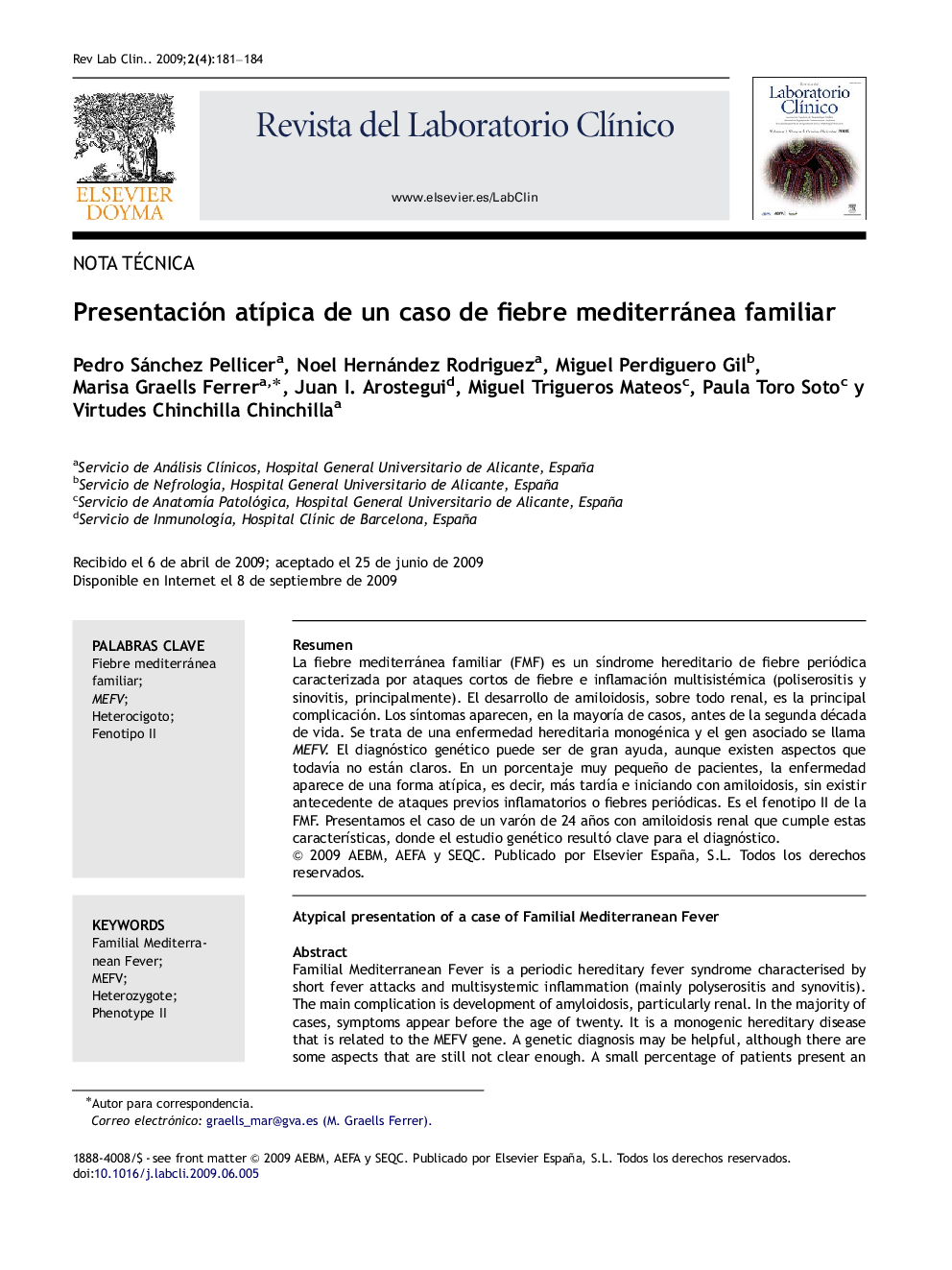| Article ID | Journal | Published Year | Pages | File Type |
|---|---|---|---|---|
| 2578518 | Revista del Laboratorio Clínico | 2009 | 4 Pages |
Abstract
Familial Mediterranean Fever is a periodic hereditary fever syndrome characterised by short fever attacks and multisystemic inflammation (mainly polyserositis and synovitis). The main complication is development of amyloidosis, particularly renal. In the majority of cases, symptoms appear before the age of twenty. It is a monogenic hereditary disease that is related to the MEFV gene. A genetic diagnosis may be helpful, although there are some aspects that are still not clear enough. A small percentage of patients present an atypical form, appearing later and debuting with amyloidosis but without any previous inflammatory attacks or periodic fevers. This form is Familial Mediterranean Fever phenotype II. We present the case of a 24 year-old with renal amyloidosis that presents these characteristics and in whom the genetic study was fundamental for the diagnosis.
Related Topics
Life Sciences
Biochemistry, Genetics and Molecular Biology
Clinical Biochemistry
Authors
Pedro Sánchez Pellicer, Noel Hernández Rodriguez, Miguel Perdiguero Gil, Marisa Graells Ferrer, Juan I. Arostegui, Miguel Trigueros Mateos, Paula Toro Soto, Virtudes Chinchilla Chinchilla,
